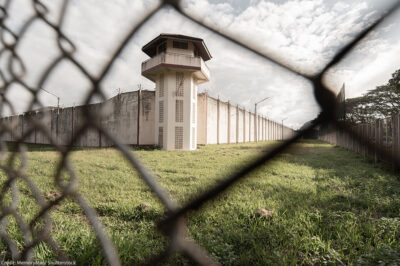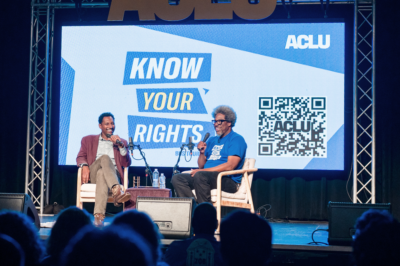
New York Times columnist Nicholas Kristof used his space in Sunday's paper to highlight a new book called The Other Wes Moore, which tells the story of two young men from the decaying, inner-city streets of Baltimore named Wes Moore. One went on to win a Rhodes scholarship in 2000 and now has a successful career and family, and this book. The "other" Wes Moore is currently serving a life prison sentence for the murder of an off-duty police officer.
In the book, Wes Moore writes, "The chilling truth is that his story could have been mine. The tragedy is that my story could have been his."
Despite where both men ultimately end up in life, their respective roles could easily have been reversed, as both struggled to break out of the cycle of incarceration that traps far too many Americans, particularly low-income African-American men.
Kristof writes:
It should be a scandal that California spends $216,000 on each child in the juvenile justice system, and only $8,000 on each child in the Oakland public schools.
It is indeed tragic that many young people in our country do not receive the care and support that are essential to success in life until it is too late. The question of why we are willing to spend such large sums to prosecute and incarcerate young people, but only a fraction of that amount on actually keeping young people out of the justice system and on the path to a successful and promising life, must be asked.
There is currently legislation pending in both the House and Senate called the Youth PROMISE (Youth Prison Reduction through Opportunities, Mentoring, Intervention, Support, and Education) Act. The Youth PROMISE Act would proactively focus on prevention practices that only address the underlying root causes of youth violence and gang activity, but also yield impressive cost-savings in the amount of federal and state money spent on incarceration every year. Instead of funneling more young people into the juvenile and adult criminal justice systems, Youth PROMISE would engage both vulnerable young people and the communities in which they live before crimes are committed or acts of violence take place.
At its core, it is about breaking the vicious cycle of crime and incarceration and the notion that there are "throwaway" children who are a lost cause.
Passage of this legislation in Congress would be nothing short of a landmark moment in fundamentally changing the way our public policies approach the intersecting issues of poverty, crime and young people.
The young Wes Moore who went on to become a Rhodes Scholar attributes much of his success in life to the persistent determination of his mother in ensuring he was given an education and the role of mentors in steering his life in a hopeful direction.
We know what works with vulnerable young people. It's not rocket science. What it does require is a willingness to see the promise in every child and the investments to reach them through evidence-based prevention programs. While the cycle of incarceration is daunting, it is not indestructible. We owe it to the most vulnerable members of society to begin doing everything within our power to chip away at it.




